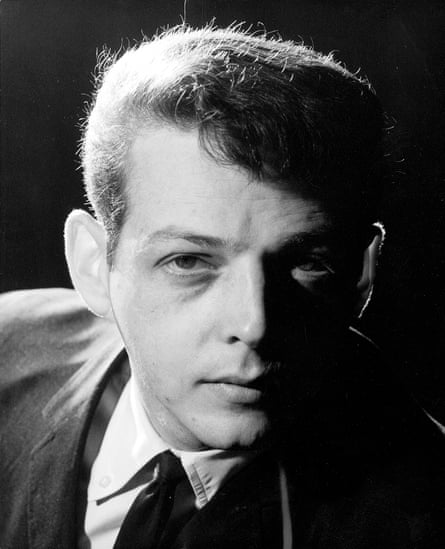Shel Talmy, the music producer behind classics such as the Kinks’ You Really Got Me and the Who’s My Generation, has died aged 87. His publicist said he died peacefully in his sleep, due to complications after a stroke.
“Even the briefest survey of the most essential pop and rock recordings of the 1960s would need to include something Shel produced,” said Talmy’s archivist Alec Palao in a statement. “That in itself is an incredibly meaningful legacy … Talmy was truly a one-off.”
Born Sheldon Talmy in Chicago in 1937, he moved to Los Angeles where his career began in Hollywood’s Conway Studios, producing early pop, R&B and surf-craze music.

He visited the UK in 1962 for a holiday and to speculatively enquire about production work – and ended up helming some of the most well-loved pop and rock music of the era.
He was hired by Decca Records, a label he joined under false pretences. “I said, ‘I am arguably the greatest thing since sliced bread was invented,’ and reeled off a whole string of hits I hadn’t done,” he later said. “By the time they found out it was all bullshit, I’d already had my first hit, and they were very gentlemanly.”
He met the manager of an up-and-coming band called the Ravens, soon to be the Kinks. Talmy helped to get them signed to Pye Records, and produced their first releases Long Tall Sally and You Still Want Me. The follow-up was You Really Got Me, with Talmy using raw, almost blown-out production to capture the raucous immediacy of the track. It became a UK No 1 hit, and hugely influential on British rock music.
Talmy continued working with the Kinks until 1967, producing No 1 hits Sunny Afternoon and Tired of Waiting for You as well as Dedicated Follower of Fashion, All Day and All of the Night, and more.
The Who’s Pete Townshend was such a fan of Talmy’s work on You Really Got Me that he wrote a song inspired by it, I Can’t Explain, to persuade Talmy to produce the band’s first work. I Can’t Explain became their debut and reached the UK Top 10, as did the Talmy-produced follow-up Anyway, Anyhow, Anywhere, but it was third single My Generation that became the band’s big breakthrough and an era-defining statement of disaffection – again, Talmy gave it a raw, almost punkish feel to match the lyrics’ snubbing of convention.
Talmy also produced The Kids Are Alright, a commercial flop on release now seen as a Who classic, as well as the album My Generation, which contained those singles as well as other Townshend originals and covers of James Brown and Bo Diddley. But a dispute with manager and producer Kit Lambert led to a breakdown of the working relationship.
In 1965, Talmy also worked with David Bowie producing two singles with bands he fronted before his 1967 solo debut album: I Pity the Fool by the Manish Boys, and You’ve Got a Habit of Leaving by Davy Jones & the Lower Third. He also produced Top Five hits for Manfred Mann – Semi Detached, Suburban Mr James and Ha! Ha! Said the Clown – as well as their successful cover of Bob Dylan’s Just Like a Woman.
Other Talmy-produced rock acts included the Creation – he had a hand in the innovative use of a violin bow on guitars, later saying: “As I recall, [guitarist Eddie Phillips] was practising guitar at somebody’s house and there happened to be a violin bow around, and he picked it up and started messing with it. I heard it, and I said, Christ, let’s use that. I’ve never heard that sound before.” He also produced the Andy Fairweather Low-fronted Amen Corner, while Australian group the Easybeats had a global hit in 1966 with the Talmy-produced Friday On My Mind.
Talmy also had a had in landmark albums from the British 1960s folk revival, including the first three Pentangle LPs, and two by Roy Harper.
After a phenomenal work rate during the 1960s, Talmy returned to the US, and mostly stopped producing after becoming jaded with the music industry: “The early 70s went through a very fallow period,” he later said. “It was not the same music scene. Everything started getting corporate.” He had occasional production credits later in life, for acts such as Coven, Vicki Brown and Fuzztones.
Source: theguardian.com


